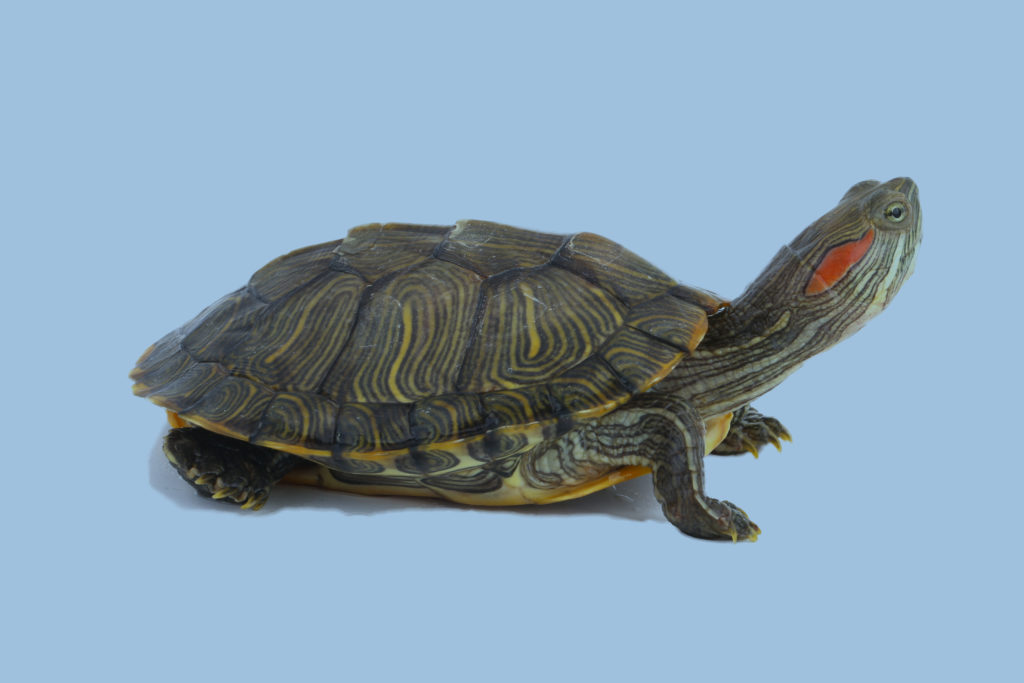Jill Talbot’s column, The Last Year, traces the moments before her daughter leaves for college. It ran every Friday in November, and returns this winter month, then will again in the spring and summer.
Childhood is full of fictions, at least it should be. When my daughter, Indie, was little, her favorite game to play in the pool was Turtle, Turtle. She’d climb on my back, and I’d swim around saying “Turtle, Turtle,” the way you’d say “Ribbit, Ribbit” for a frog.
We found him in my parents’ backyard pool, all four of his legs flipping. Indie was seven that summer. She and I had been taking one last swim before heading back to Oklahoma, four hours north. While I dove down, Indie stood on the steps of the pool. The turtle, a red-eared slider, was tiny, about the size of my palm. Indie named him Flipper.
We lived in a duplex those four years in Oklahoma. We had a little garden patch beneath our front window. There were four units in all, so we shared a sidewalk with an opera singer who worked at the grocery store, a large, loping Marine who had done two tours in Afghanistan, and a frumpy student who mostly wore brown and sat outside to study in a chair from his kitchen. I had a visiting professor’s salary, and there wasn’t a month when we made it to the thirtieth or thirty-first before we ran out of money.
Indie and I made a home for Flipper out of a kitty litter box, a blue one. We filled it with rocks, grass, and leaves, and put it in our garden. He was a happy turtle. He’d bask on one of his rocks in the corner or burrow beneath a layer of leaves. When we’d find him with his right front leg stretched out, we’d know he was sleeping.
For the people in our duplex community, life was either on hold or had no hold. At night, the singer played piano, practiced trills, but sometimes she played another song, long and loud sobs, an opera of despondence. The Marine stared at the blare of his oversize TV from his couch, working through a twelve pack every night, and the student made the same walk to the grocery store every day, a drooping plastic bag in each hand. We wondered what their real stories might be. I’m sure they wondered about mine.
I don’t know when I made up the story, but at some point I told Indie that Flipper’s house was a coffee shop he ran called Sinatra’s. From sunup to sundown, Flipper took orders, whipping up Frappuccinos and lattes. He even had a little apron, like the one the Marine wore when he cooked. And the student, on his daily errand, bought the ingredients and supplies Flipper needed. Indie and I’d step out to the porch and order drinks, and we’d marvel at the long line or see that it was a slow day, and some mornings, one of us would guess the muffin from the scent—cinnamon.
Our neighbors liked to say hello to Flipper when they passed, coming and going, but when we told them about Sinatra’s, we started hearing them ask things like, “Hey, Flipper! How’s business?” or order a vanilla latte.
One day, the opera singer knocked on our patio door and held up a three-inch plastic dinosaur, purple and yellow. She said she thought Flipper could use some help. Indie rushed out and set the dinosaur on top of a rock in the middle of the café. We named him Frank.
That coffee shop gave us all a fiction we needed.
Read earlier installments of The Last Year here.
Jill Talbot is the author of The Way We Weren’t: A Memoir and Loaded: Women and Addiction. Her writing has been recognized by the Best American Essays and appeared in journals such as AGNI, Brevity, Colorado Review, DIAGRAM, Ecotone, Longreads, The Normal School, The Rumpus, and Slice Magazine.
from The Paris Review https://ift.tt/2sWQWoi

Comments
Post a Comment